
This post may contain links from our sponsors and affiliates, and Flywheel Publishing may receive
compensation for actions taken through them.
In the last several days it has become increasingly evident that the chances of a “fourth wave” of the spread of COVID-19 is a possibility. The coronavirus has been partially brought under control in the last two months through vaccinations and the continuing, at least in some places, of the traditional preventive measures of mask wearing and social distancing. This is when Americans can stop wearing face masks according to Dr. Fauci.
Unfortunately, several states have announced that the use of masks is no longer mandated, and that unrestricted or large-scale social gatherings will be allowed. Those measures will almost certainly mean an upward spread of the disease, as will the continued reluctance of some people to get vaccinated. Thse are the states where the most people are refusing the COVID-19 vaccine.
The good news is that new daily cases of COVID-19 in America have dropped by about two thirds from a rate of over 200,000 in January. Daily deaths have dropped by a comparable amount, from a daily pace then of about 4,000.
On the vaccination front, the pace has quickened considerably. The Biden Administration says there will be enough supply by the end of May to vaccinate all Americans. As of today, 18% of Americans have been given at least one dose and 9.7% have been fully vaccinated. Nationwide, 123,232,775 doses have been delivered to date and 93,692,598 shots have been given.
Nevertheless, the U.S. has posted 29,402,796 confirmed cases to date (about 25% of the global total) and American deaths stand at 533,119 (about one fifth of those worldwide). Additionally, public health experts and epidemiologists say that there are probably twice as many cases as have been reported, due to inadequate testing and the number of likely asymptomatic carriers.
Considering this state of affairs, this is what Dr. Fauci and other public health experts are now warning Americans about.
Click here to see what worries Dr. Fauci right now about COVID-19
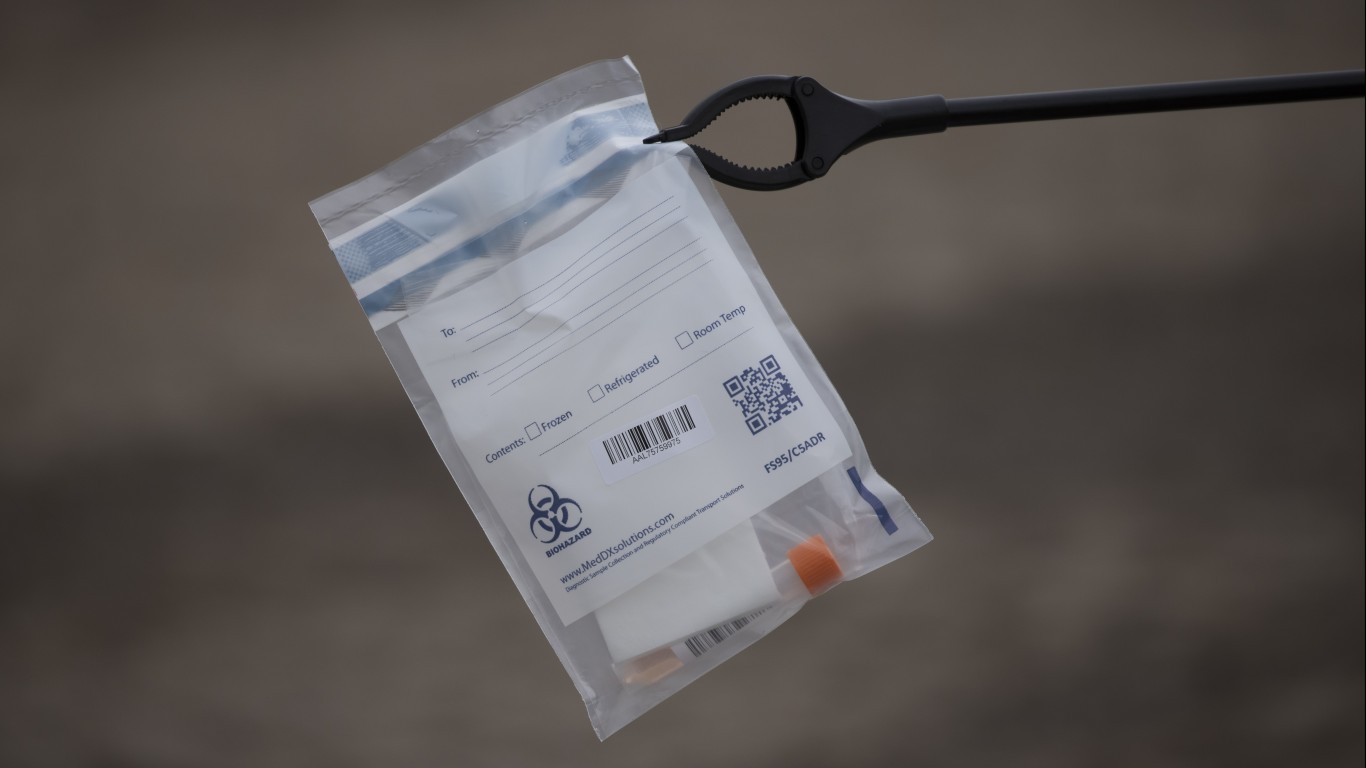
Variants are on the rise
The CDC currently tracks three variants of the coronavirus. These are identified as variants B.1.1.7, B.1.351, and P.1. The first of these, B.1.1.7, has spread to 49 states, with the majority of occurrences recorded in Florida, Michigan, New York, and California.
The B.1.1.7 not only spreads quickly. It is still too early to tell if it resists any of the three current vaccines. If this becomes a problem, it would quicken the spread of the disease. The New York Times reports that as many as 20% of new cases in the U.S. are caused by the B.1.1.7 variant.
[in-text-ad]
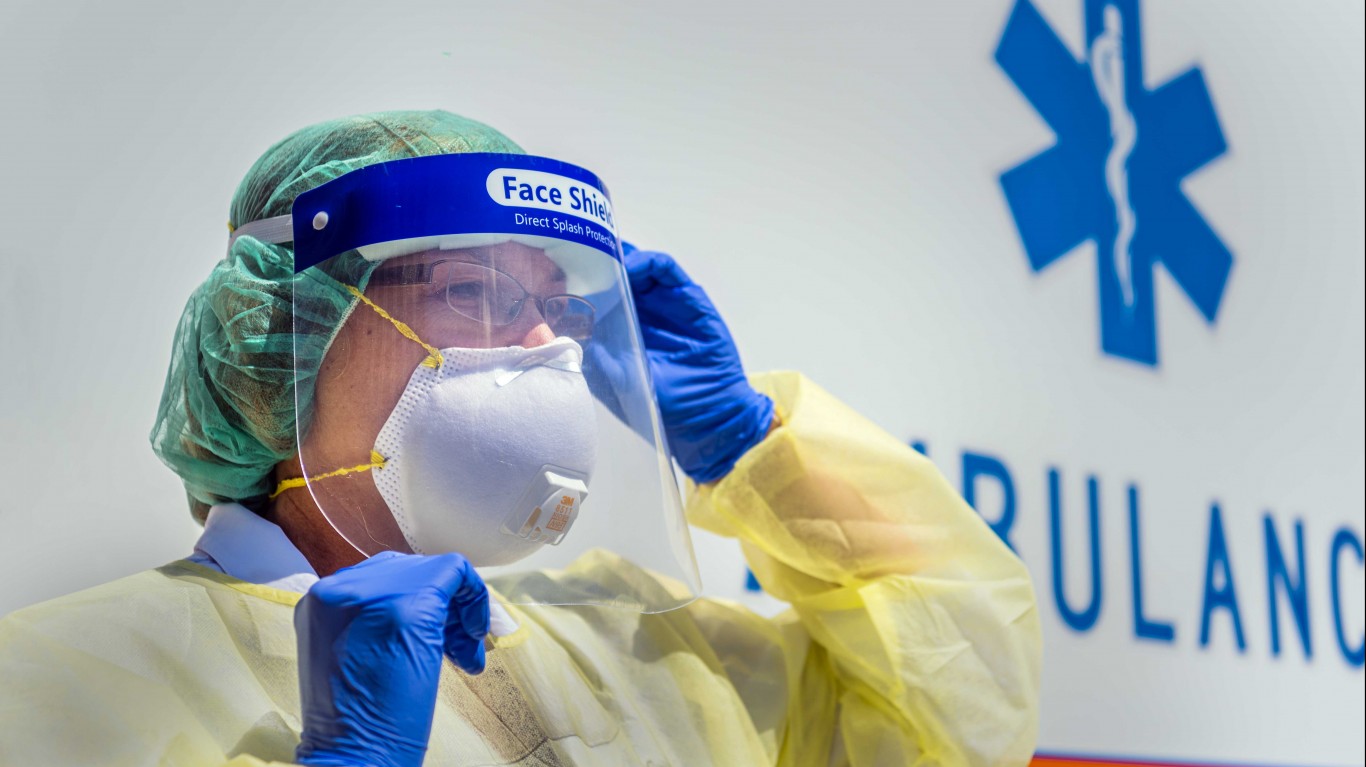
The slowing of the infection rate might not be permanent
Because experts worry that one or more of the variants is spreading faster than the version which has been the primary cause of the disease since January 2020, the infection rate could rise again. During an interview with the Center for Strategic and International Studies, Dr. Fauci said that this means “we might plateau again at an unacceptably high level.”
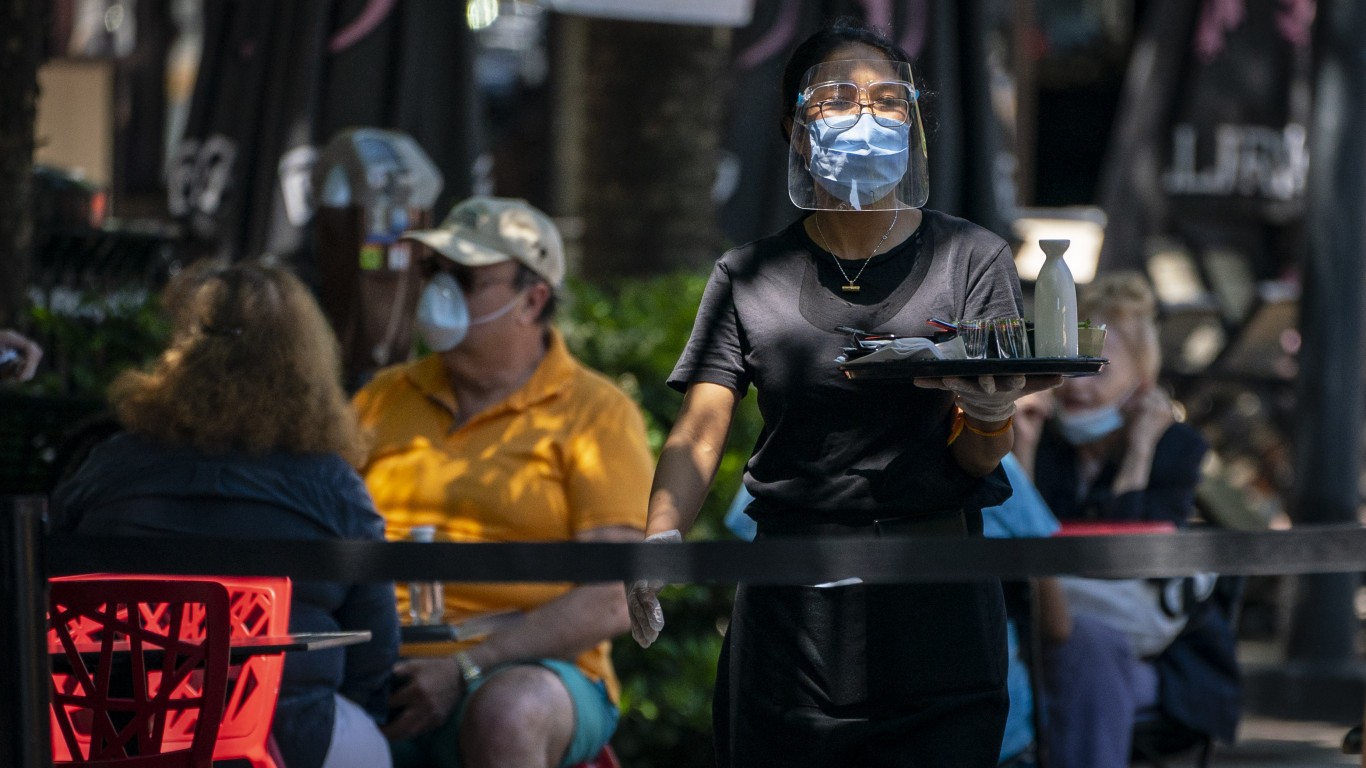
We’re opening up too fast
Among the reasons for Dr. Fauci’s concern is that America has started to reopen. At least 16 states no longer have mask mandates. The most visible of these is Texas, the nation’s second largest state by population. Gov. Greg Abbott said that its mask mandate would be dropped and that some businesses could reopen at 100% capacity. Dr. Dona Murphey, a physician scientist and community organizer in Houston, commented “This is completely politically motivated.”
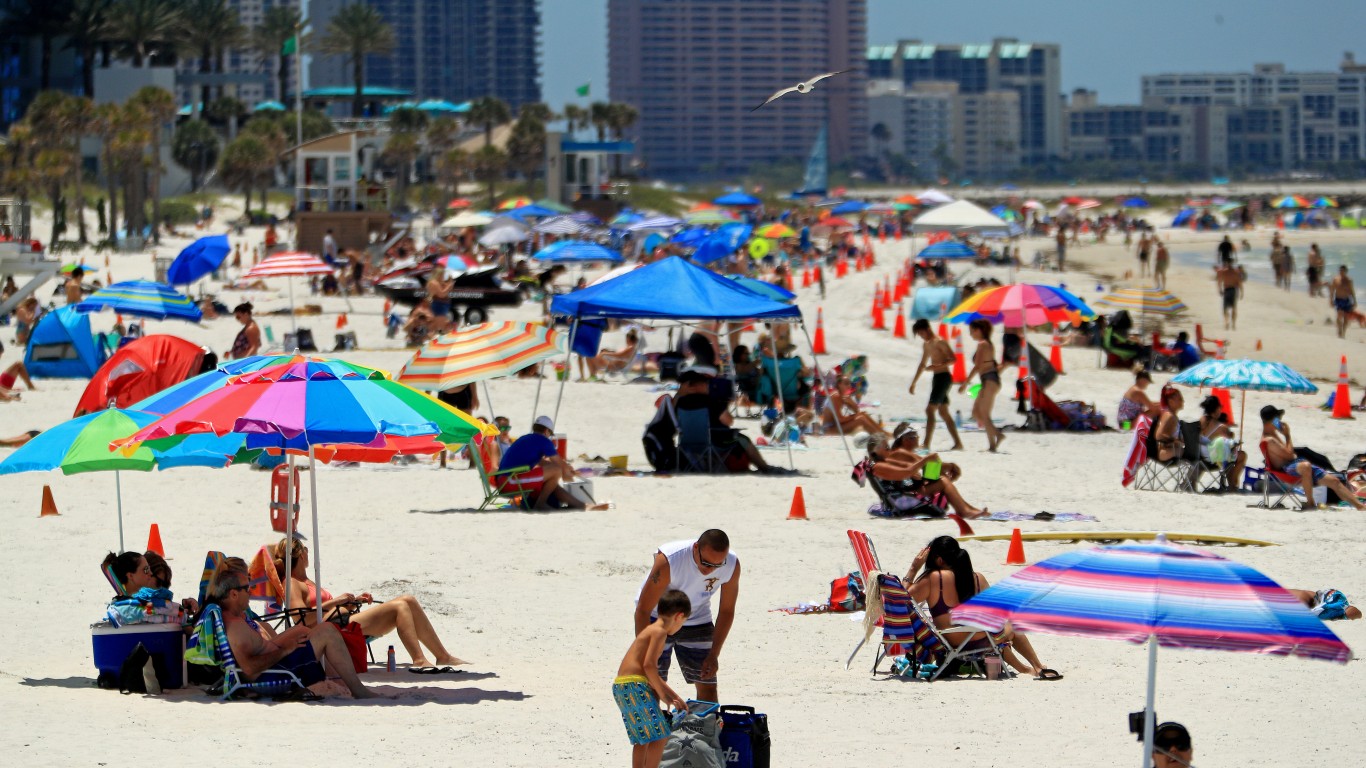
The superspreaders haven’t gone away
Another matter of deep concern among epidemiologists and public health officials is a resurgence of large gatherings. A whole spate of these is going to happen soon. As southern Florida and other vacation spots prepare for spring break, authorities worry that a sudden influx of party-going college students could cause a large spread both in the immediate areas and, as they return home, around the country.
Dr. Peter Hotez, dean of the National School of Tropical Medicine at Baylor College of Medicine commented to CNN: “You’ve got the B.1.1.7 variant accelerating in Florida. You’ve got all these 20-year-old kids. None of them are going to have masks. They’re all going to be drinking. They’re having pretty close, intimate contact. And then, after that’s all done, they’re going to go back to their home states and spread the B.1.1.7 variant.”
[in-text-ad-2]
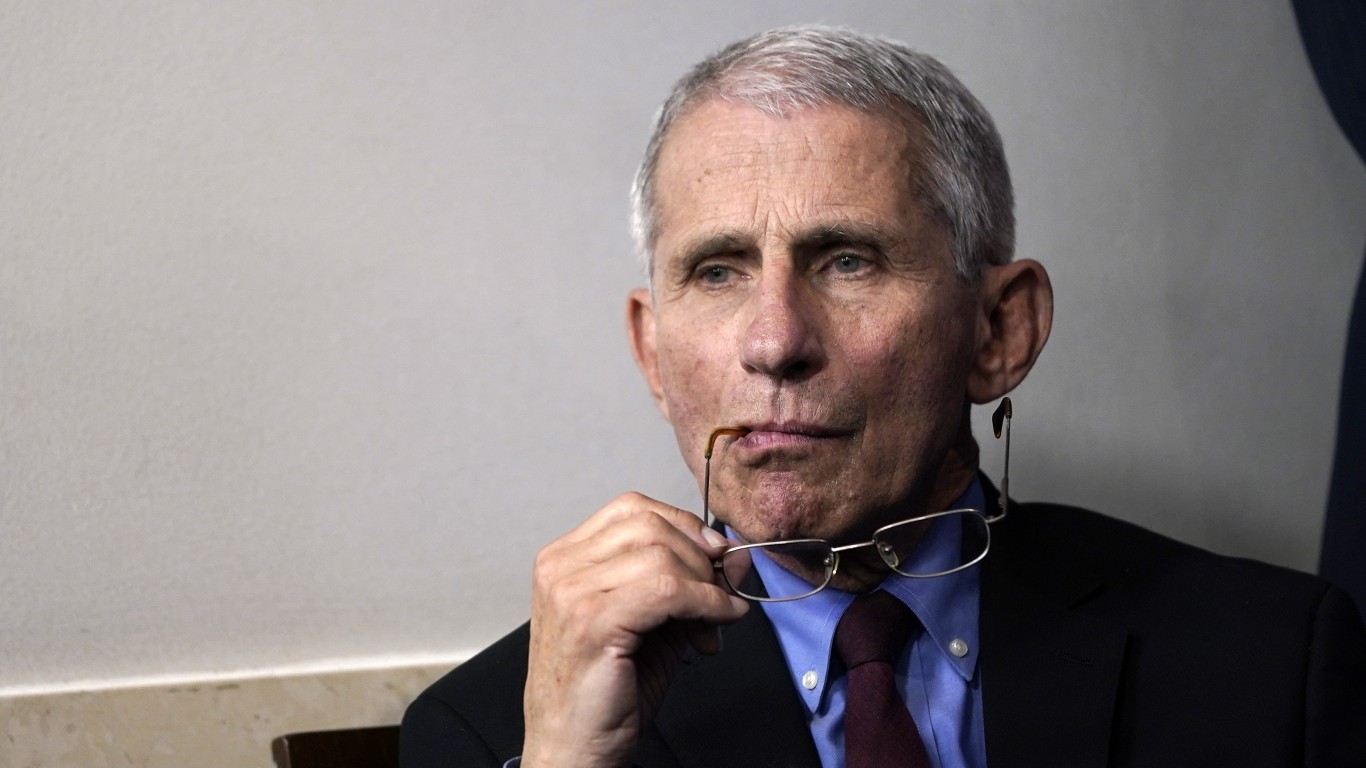
The old advice is still the best advice
The primary recommendations from Dr. Fauci and almost every other health official or physician in the country has not changed. And it is the same advice the CDC has offered for over a year: Wear masks, social distance by six feet, and stay out of crowded places.
Credit Card Companies Are Doing Something Nuts
Credit card companies are at war. The biggest issuers are handing out free rewards and benefits to win the best customers.
It’s possible to find cards paying unlimited 1.5%, 2%, and even more today. That’s free money for qualified borrowers, and the type of thing that would be crazy to pass up. Those rewards can add up to thousands of dollars every year in free money, and include other benefits as well.
We’ve assembled some of the best credit cards for users today. Don’t miss these offers because they won’t be this good forever.
Flywheel Publishing has partnered with CardRatings for our coverage of credit card products. Flywheel Publishing and CardRatings may receive a commission from card issuers.
Thank you for reading! Have some feedback for us?
Contact the 24/7 Wall St. editorial team.

